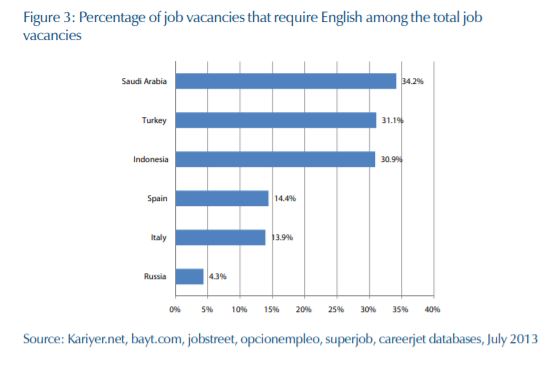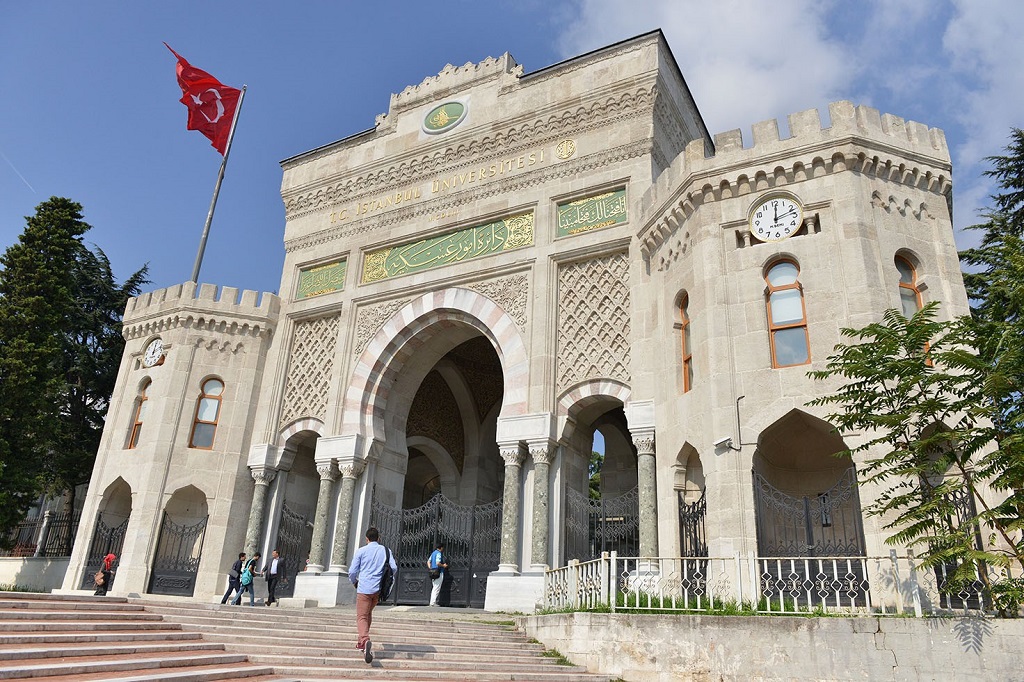Istanbul is the melting pot of many cultures and the capital of many empires. Since ancient times, Istanbul has been an essential part of world history than most countries.
In Istanbul, you can see traditions and cultures which are hundreds or even thousands of years old. The number of languages spoken in Istanbul also reflects its eclectic historical and cultural diversity.
In this guide, as a Turkish Local, I will provide general information about languages spoken in Istanbul and give some interesting facts for you to better understand and experience Istanbul.
What Language is spoken in Istanbul?
The most widely spoken language is Turkish in Istanbul. The other languages commonly spoken are English, Kurdish, and Arabic.
Many residents and Turkish people also speak German, French, Spanish, Italian, Russian, Azerbaijani, and other Turkic languages.
Greek, Armenian, Ladino, and Albanian are historical languages natively spoken by small communities.
| How widely are languages spoken in Istanbul? | Language |
| Most Spoken Language | Turkish |
| Commonly Spoken Languages | English, Kurdish, and Arabic |
| Less Common Languages | German, French, Russian, Spanish, Italian, Azerbaijani and other Turkic Languages |
| Rare Languages | Greek, Armenian, Ladino, Albanian |
If you are interested in learning Turkish, this is the book that most of my friends use. You can check the book on Amazon.
How widely is English spoken in Istanbul?
English speakers are highly needed in the developing Turkish economy, and as a result, English is the most popular secondary language in Turkey.
Research conducted by the European Union revealed that 18% of the Turkish population speaks English with varying degrees of proficiency.
There is no official data, but as a local, I can tell how widely English is spoken in Istanbul.
English is more widely spoken in Istanbul than everywhere else in Turkey because Istanbul is the commercial capital of Turkey.
Most of the top-educated English-speaking Turkish people are employed in Istanbul.
For this reason, Turkish locals in Istanbul, speak English more frequently and fluently than in other parts of Turkey.
For economic reasons, 31 out of 100 jobs posted in Turkey require some degree of English knowledge.

Additionally, Istanbul has a strong tourism sector with many English speakers, and the city is visited by 12 million international tourists every year.
If Istanbul manages to host this many tourists and send them happily back to their homes, Istanbul will welcome you as well.
With a bit of effort, you can enjoy Istanbul by only speaking English.
For travel tips and hacks about Istanbul click to read Istanbul: All You Need to Know Before Coming or Is Istanbul Safe? Answered By a Local.
What European Languages are spoken in Istanbul?
German is the most spoken foreign language in Turkey after English.
According to European Union Statistics, 4% of Turkish people have some level of proficiency in the German Language.
Also, it is essential to note that the percentage of German speakers in Istanbul will be higher than the Turkish national average.
Following the English and German languages, French, Spanish, Russian, Chinese, and Italian are the major foreign languages Turkish people speak.
Spanish and Italian are also native languages of small minority communities in Istanbul.
If you are not traveling with a guide or a tour, it will take a lot more effort to enjoy Istanbul relying on foreign languages other than English.
Suggested Reading: 21 Fun and Unique Things To Do in Istanbul (A Local’s Guide)

This article focuses on Istanbul, read my article What Languages Do Turkish People Speak? to get a full picture of languages spoken in Turkey.
Turkish, Azerbaijani, and Turkic Languages in Istanbul
Turkish is the only official language in Turkey. According to EU Stats, 93% of Turkish people speak Turkish as their native language and 6% as a secondary language.
The Istanbul accent is the universal form of Turkish in Turkey. For these reasons, all Turkish courses teach the Istanbul dialect of Turkish.
If you have some Turkish language training, you will have no hard time understanding the accent of Turkish people in Istanbul.
You can enjoy Turkey with intermediate-level Turkish, and locals are especially fond of foreigners speaking their languages.
Main Turkic Languages are Turkish, Turkmen, Azerbaijani, Uzbek, Uyghur, Tatar, Kazakh, and Kyrgyz languages.
Azerbaijani is the closest language to Turkish and has a very high degree of mutual intelligibility.
Other Turkic language dialects may take time to adjust, but you would find that Turkish and Turkic Languages are also mutually intelligible once you get used to the Turkish accent.
You can check my articles on the Turkish Language and its Origins, and Similar Languages to Turkish to learn more about Turkish and Turkic Languages.
Other Minority Languages in Istanbul
Greek and Armenian are official minority languages in Turkey. Although Istanbul’s population increased many times in recent decades, the Greek and Armenian populations of Istanbul decreased.
Today, Greeks and Armenian communities constitute less than 1% of Istanbul. Yet, various cultural and religious centers of the Greek and Armenian community still function today.
One of many things to visit in Istanbul is the Orthodox Patriarchate of Constantinople, which is considered the mother church of all Orthodox churches.
Since Jewish sought refuge in Turkey after the Spanish Inquisition of 1492, the Jewish community in Istanbul speaks the medieval form of Spanish (Ladino) in Istanbul.
Additionally, various cultural groups in Istanbul speak 30 native languages, like Albanian. Still, you may not encounter these languages while you are wandering the streets of Istanbul.
Suggested Reading: Greek vs Turkish to know the differences.
Is Arabic spoken in Istanbul?
Turkish people with Arabic ancestry are mostly bilingual, and they also speak Turkish.
A decade ago, Arabic was spoken by less than 1% percent of Istanbul’s local population, but recently, the number of Arabic speakers increased vastly.
After the Syrian civil war, Istanbul was one of the top places that Syrian refugees chose to settle. Now around 1 million Syrian refugees are living in Istanbul.
In some of Istanbul’s districts like Fatih, Arabic speakers may feel at home.
Yet, the Arabic language is not popular as other Western languages among Turkish locals. While you may feel at home in some parts of Istanbul, you will not find anyone who speaks Arabic in some areas.
You can enjoy Istanbul by only using Arabic, yet speaking English will help you further experience Istanbul.
Click Arabic vs Turkish to learn why Arabic is not related to the Turkish language.
Is Ottoman Turkish still used?
Some of the languages of Istanbul, like Ottoman Turkish, are longer spoken or used by Turkish people. These historical languages are known mainly by historians and used in academic studies.
You can see Ottoman Turkish written with the Arabic Alphabet in many monuments in Turkey.
Yet, Turkish people would not understand Ottoman Turkish and the Arabic alphabet.
Here is the famous gate of Istanbul University Law School with Ottoman Turkish inscriptions.
I graduated from this school and passed the university’s gates countless times. Yet, I have no idea how someone can read this Ottoman text.

Check out my article to learn Why and When Istanbul became Constantinople.
Is Kurdish spoken in Istanbul?
Before the 1960s Kurdish minority was living in small communities in southeast Turkey.
After the 1960s, there was a significant migration movement toward the cities of Turkey, and Istanbul was the first choice for Kurdish native speakers.
Today, while there are still some divisions at the political level, ordinary Turkish and Kurdish people do not have much problem living in the same areas.
A decade or two-decade ago, the Kurdish people were hesitant to speak their language publicly, and the Kurdish language was banned in TV shows.
Now the Kurdish language is commonly spoken throughout Turkey, and there are Kurdish TV channels that are broadcast only in Kurdish.
However, the integration of the Kurdish and Turkish populations led to a decrease in the usage of the Kurdish language.
It is estimated that %15-%25 of the Turkish Population has Kurdish ethnic roots. Yet, native Kurdish speakers in Turkey are around 9% (including bilinguals).
According to a European Union survey, 93% of the Turkish population declares Turkish as their native language.
Young generations of the Turkish population with Kurdish ancestry are choosing Turkish over Kurdish.
Northern Kurdish and Zaza are the most common Kurdish dialects spoken in Istanbul.
Check out my article on Iranian Languages spoken in Turkey and Turkish Languages Spoken in Iran to learn more about Persian, Kurdish, and Turkish Language relations.
How hard is Turkish?
Learning Turkish can seem daunting at first, but Turkish is relatively easy once you pass a certain learning threshold. Turkish is highly regular in its grammar.
For this reason, if you can learn the grammar rules, it will be a straightforward word-learning exercise.
If learning Turkish seems challenging, first learn how to read Turkish. The Turkish alphabet uses similar sounds to the Latin Language.
With an hour of practice, you can easily read Turkish, and unlike English, there are no rule exceptions or spelling competitions in Turkish. Turkish is read as it is written.
If you know how to read in Italian or Spanish, it is easier to read Turkish. Just read Turkish as if it is Spanish or Italian, and you will pronounce the words with 80% accuracy.
When Turks adopted the Latin alphabet, we also adopted the Latin alphabet’s pronunciation. We use nearly the same sounds as Italians and Spanish when reading Turkish.
Check my Turkic Languages guide to learn languages mutually intelligible with Turkish.
A small exercise that can make your Turkish trip extra enjoyable
Reading and speaking Turkish with locals will be an excellent exercise to understand if Turkish is a language that you can grasp.
Also, Turkish locals love foreigners trying to learn Turkish and will treat you with extra hospitality.
Check out my other articles about Istanbul
- Where to Stay in Istanbul? A Local Answers with Map
- Istanbul – What Do You Need to Know Before Visiting?
- 21 Fun and Unique Things To Do in Istanbul (A Local’s Guide)
- A Local’s Guide to Unique Day Trip Ideas from Istanbul
- Why and When did Istanbul Become Constantinople? A Local Answers
- Is Istanbul Safe? Answered By a Local
- Is Istanbul in the Middle East? Location, Culture, Climate, and More
- How to Order Food Online in Istanbul? A Local Answers
- Which Water Should You Use in Istanbul? Answered by a Turkish Local
- What Languages are Spoken in Istanbul?
- Fashion in Istanbul – Places to Shop, Brands, Designers, and more
- A Local’s Guide to Istanbul – Everything You Need To Know
- A Local’s Guide to Airports of Istanbul
ALL MY ARTICLES ABOUT TURKISH LANGUAGE – (Click on the title to read)
Origins of the Turkish Language – A Native Speaker Explains
Languages Similar to Turkish – Explained by a Native Speaker
What Languages Do Turkish People Speak?
What Languages are Spoken in Istanbul?
Turkic Language Family – A Turkish Explains
Turkish vs Persian (Farsi) Language: Similarities and Differences
